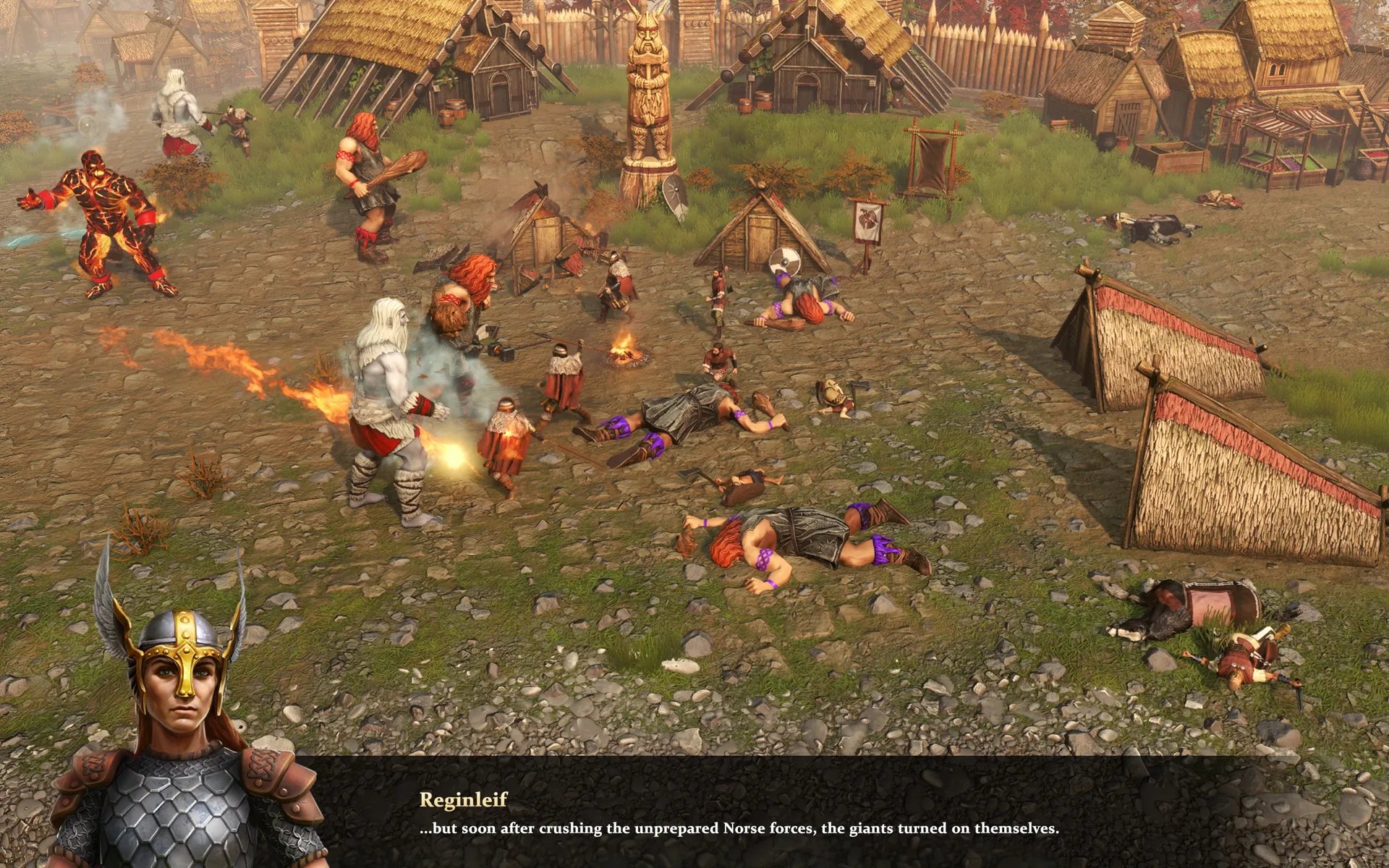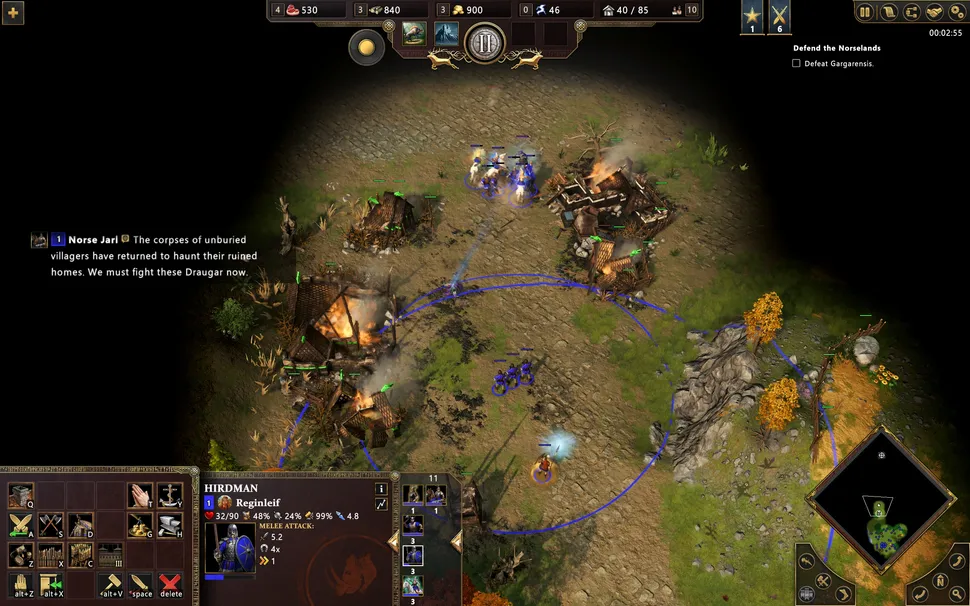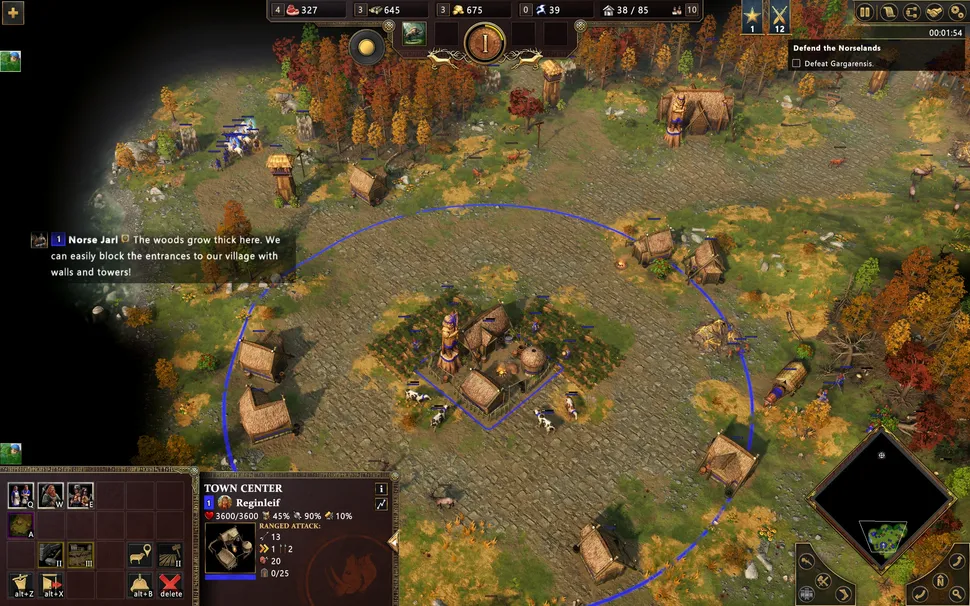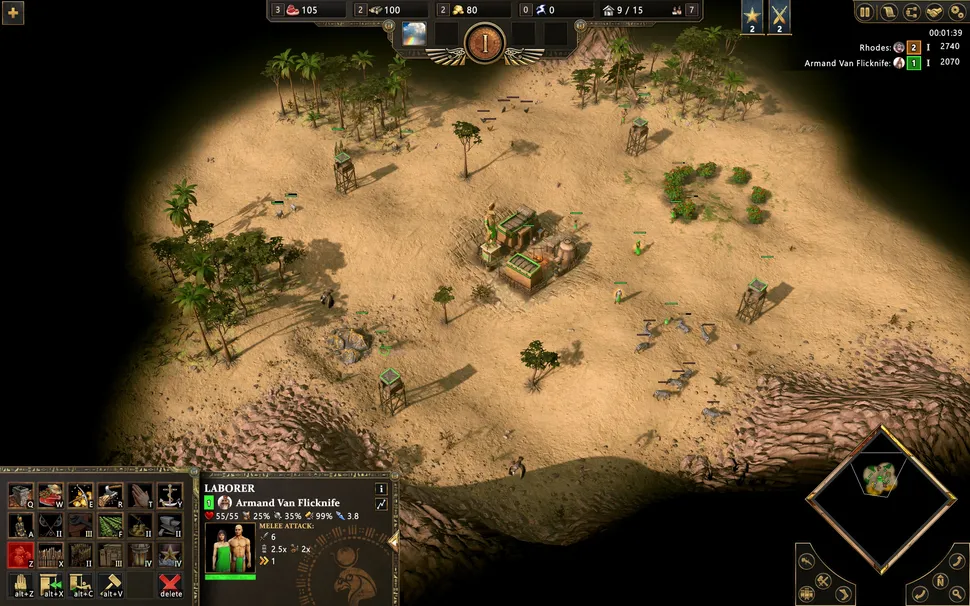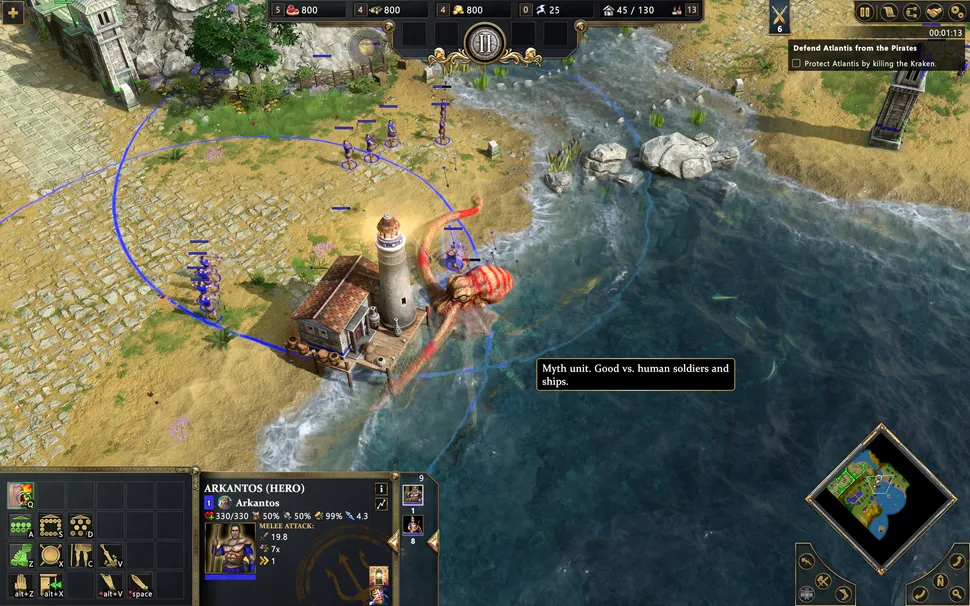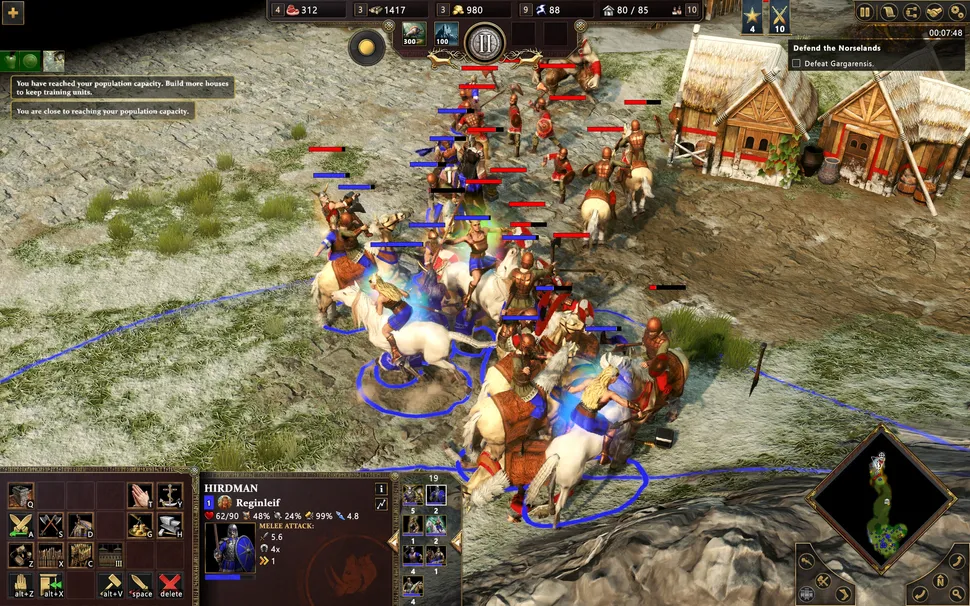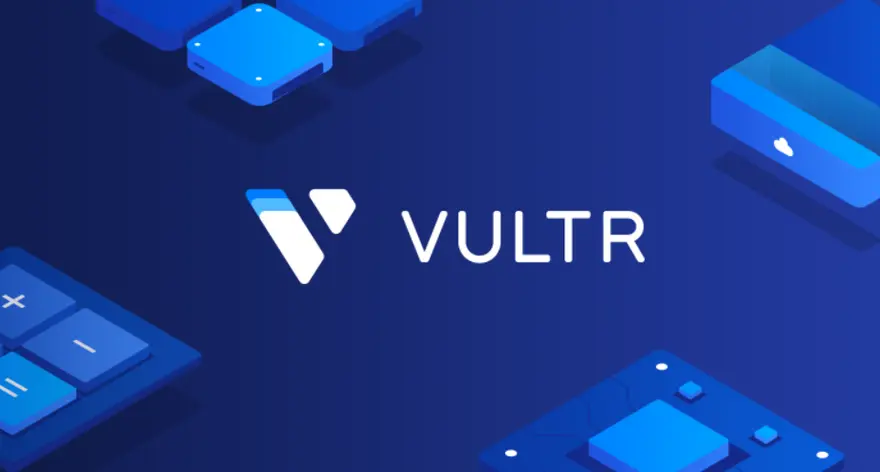Age of Mythology: Retold is still mostly a classic RTS, but the visual overhaul makes a big difference.
How the mighty are fallen. In a bygone era, Tiberium harvesters and chariot archer rushes were a mainstay on my monitors, and my keyboards bore careworn lines where the 'build archery range' shortcut keys lay. It was a time of plenty, but modern real-time strategy games are far rarer, and that means the stakes always feel high when one arrives. Particularly one that starts with Age of...
Enter Age of Mythology: Retold—not a 100% faithful translation of Ensemble’s 2002 original but, as the name indicates, a modern interpretation which walks the tightrope of updating the bits that feel clunky by today’s standards without killing the sense of nostalgia. It’s a particularly tricky kind of alchemy, and although there are some tonal mis-steps *cough* voice acting *cough* it largely succeeds in knowing when to stick and when to twist.
That’s despite a list of developers so long that it makes the average Call Of Duty seem like a mad auteur’s passion project. World's Edge, Forgotten Empires, Tantalus Media, CaptureAge, and Virtuos Games have all lent their talents to this one, and maybe it’s unfair for me to be surprised that it feels so cohesive. This is modern game development after all, the pipeline that never sleeps.
Age of Mythology is more or less Age of Empires set in mythical eras, where powerful hero units and mythological beasts fight alongside conventional military archers and spearmen. Friendlier and slower-paced than Starcraft’s ruthlessly aggressive take on RTS, but built around the usual rock-paper-scissors game of unit strengths and weaknesses. Victory is wrought by finding the right army composition and using your limited resources—food, wood, gold and favor—to materialise it.
A UI and visual overhaul occupies the headline billing since it’s the most noticeable element, and it feels in touch with the original game without being overly married to it. The arrangement of your units, resources and build options is logical and clean. Hero units glimmer with a distinctive aura, and the ancient environs hit your eye with impressive detail. One of the many reasons I’ll never rank particularly highly online in this game is that I get distracted by the lovely oceans and spend seconds at a time just… watching them.
Onto more meaningful nuts-and-bolts changes: I’ve chalked up many Ls in RTS skirmishes past and present due to over-adventurous units taking mad hikes across the map, but with the new ‘attack move’ command in Retold comes a lifeline. Micromanagement’s still important for arranging your unit types so that they hit the battle in the right order, but ‘attack move’ tells everyonne to engage with all enemies they meet along the way to your waypoint. That meant no suicidal dashes towards buildings for my campaign armies while ignoring the infantry units pelting them in close proximity. Outside of combat units can still be caught going for an unsanctioned wander off into nothingness, but Retold feels like a big upgrade on the original’s often baffling pathfinding where it matters most.
The best thing about combat in this game is finding the sweet spot between human and mythical units, and knowing when to send super-tough heroes into battle with them. It took me a few skirmishes to find that mix for Nords, whose reworking now involves more ranged units but still play very differently to their enemies (pro tip: their military units also handle building construction).
With apologies to all historical shipwrights, I found great success in naval combat by spamming ships to distract my enemies and keep the pressure off my base. That meant destroying their docks was an important step towards resigning them to the history books. With all ship types available from the Classical age, the aquatic version of rock-paper-scissors is just as tactical as the terra firma equivalent that you’re managing with your archers and infantry.
God powers are no longer one-shot, game-changing cataclysms, but now operate on cooldown timers and can be deployed more than once per round. I can’t decide whether that feels more or less strategic—the gravity of deciding when to use a powerful one-shot in the original game is offset by the depth of timing one just right in Retold so that you’ll get it at a useful moment later. The powers break down into AoE damage-dealing abilities, with some enjoyable twists like Aphrodite’s curse, which turns enemy units into pigs, and resource buffs.
God powers aren’t exclusively about raining death down on your foes with satisfying AoE icons, though. Take wonders, for example. Where before you could construct certain wonders that would win you a round if you defended them for long enough, now they simply provide you with constant passive buffs that hasten your victory. That feels like a less stressful route to the win, but not necessarily a simpler one since you still need to carefully consider how to spend those resources.
The sell here, after sitting with all of Retold's changes to a 22-year-old game, is that the slower pace and the combination of historic and mythological units makes for a relaxing, therapeutic RTS session. The Greeks, Egyptians, Norse and Atlanteans play differently enough to take some pleasure from mastery of each, and although it’s an odd business decision that the Chinese—added as DLC after the original’s release—haven't been bundled in, they are at least being added in Retold’s first DLC.
There have been concerns over the character portraits in Retold, and speculation that the devs used AI to generate them—an accusation that the devs squarely denied, stating clearly that they’re drawn by human artists. The problem to my eye isn’t who drew them, it’s that they lack charm. People get understandably attached to characterful touches in classic games when so much of the presentation was of limited fidelity, so the bar’s high when you’re updating them. It’s a minor misstep that they lack some personality, nothing more.
The same’s probably true of the voice acting. It’s probably just a minor issue. Probably. After all, cutscenes are not the game. They’re the bits that bookend it. But the performances are a rogue’s gallery of slightly off accents, and that does detract from the drama and immersion. I found myself feeling harsher towards this one point as I got deeper through the campaigns, but we should all probably remember that bad cutscene performances are basically mandatory in real-time strategy. The great Tim Curry taught us that.
Retold is brave enough to play with the balance and the stat values of its source material, and that makes for some knotty, tactically fascinating skirmishes. Watching Hittites flanked by Minotaurs lay siege to the walls of Troy has been a genre highlight for me. It could have been braver about the stylistic bits, the way gods and heroes are characterised visually and in motion. But given real-time strategy’s tenuous spot in the current PC gaming pantheon, Retold is an important, if qualified, win.
1 year ago
Share
Add Comment
